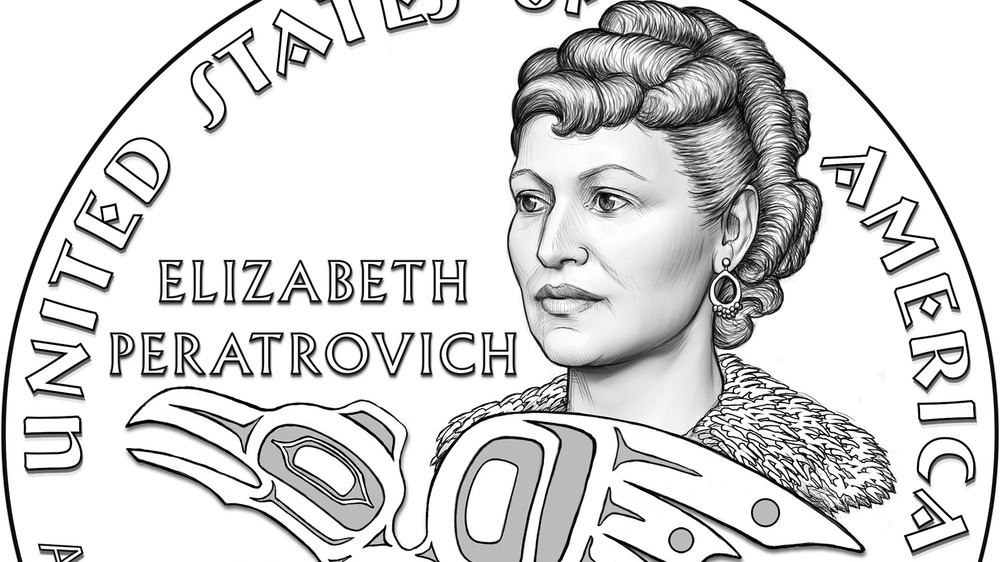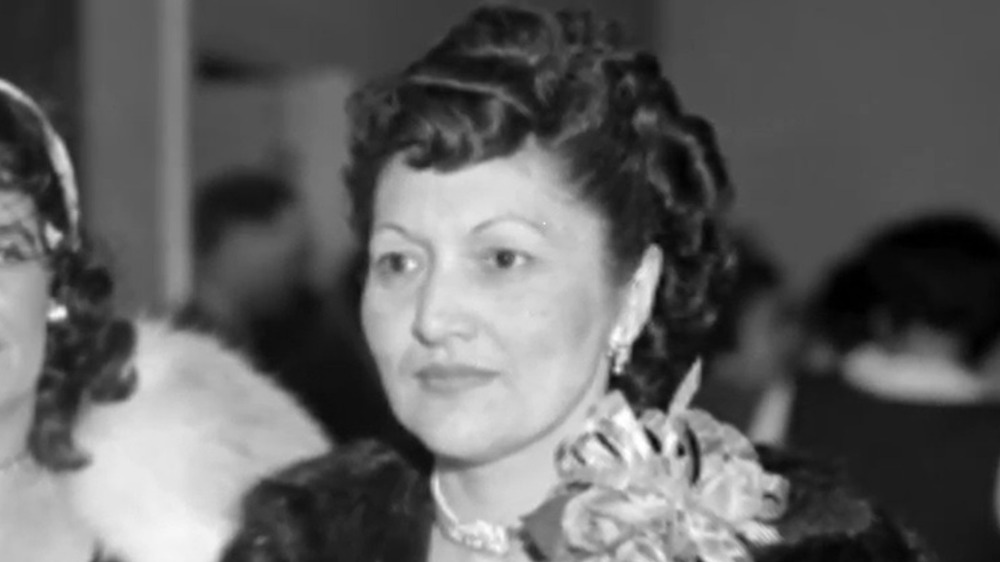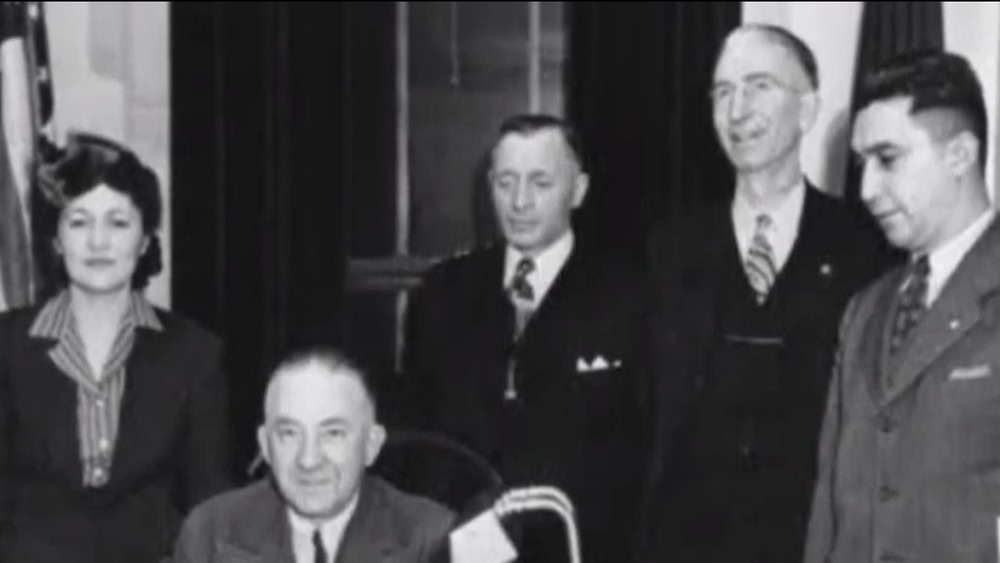The Truth About Civil Rights Activist Elizabeth Peratrovich
Civil rights activist and recent Google Doodle honoree Elizabeth Peratrovich isn't the household name she should be, as she was responsible for the United States' very first anti-discrimination law. Born in Petersburg, Alaska in 1911, per the U.S. Department of Transportations' Highway History, she was a member of the Tlingit Nation and adopted by Andrew and Mary Wannamaker. According to the website of the Central Council of Tlinglit and Haida Indian Tribes of Alaska, Tlinglit people have lived in Aani, or Southeast Alaka, since "time immemorial."
Elizabeth Wannamaker grew up poor and experienced discrimination from the white residents of the territory, who restricted where Native residents could live, eat, get medical care, and attend school. Wannamaker attended Ketichikan High School, which was integrated thanks to a lawsuit filed by a Tlinglit leader. In 1933, she married fellow Tlinglit Roy Peratrovich and in 1941, the couple relocated to Juneau, Alaska. By then, Roy led the Alaskan Native Brotherhood, while Elizabeth was grand president of the Alaskan Native Sisterhood.
In late 1941, the couple spotted a "No Natives Allowed" sign on the door of the Douglas Inn. Elizabeth wrote the first of what would be a long string of letters to Governor Ernest H. Gruening, calling the sign an "outrage" and pointing out that as the country entered World War II, "The proprietor of Douglas Inn does not seem to realize that our Native boys are just as willing as the white boys to lay down their lives to protect the freedom that he enjoys."
Elizabeth Peratrovich fought for equal rights
With Governor Gruening's support, this letter kicked off Peratrovich's campaign to pass an anti-discrimination bill through the Territorial Legislature. In 1943, the bill failed in the Alaska House by a tie vote. The Peratroviches responded by traveling throughout the state and encouraging other Alaskan Natives to join the campaign. In 1945, the bill passed the House and went to the state Senate, where it had enough votes to pass. One opponent, however — Allen Shattuck — stood up and asked of all those who were present, "Who are these people, barely out of savagery, who want to associate with us whites with 5,000 years of recorded civilization behind us?"
Elizabeth Peratrovich was known for knitting while attending legislative sessions. She stood up during the public comment period, put down her knitting, and responded: "I would not have expected that I, who am barely out of savagery, would have to remind the gentlemen with 5,000 years of recorded civilization behind them of our Bill of Rights." She went on to describe the discrimination the Tlinglit people had endured, at which point Shattuck asked her if she thought the bill would end this treatment. Peratrovich replied: "Do your laws against larceny and even murder prevent those crimes? No law will eliminate crimes but at least you as legislators can assert to the world that you recognize the evil of the present situation and speak your intent to help us overcome discrimination." She received a round of applause, and the bill passed.
Elizabeth Peratrovich made history
On February 16, 1945, Governor Gruening signed into effect the United States' first anti-discrimination law, making it illegal to prohibit any Alaska citizens from "the full and equal enjoyment" of all public spaces, including restaurants, theaters, hotels, bars, hair salons, barber shops, bathrooms, and transportation.
Elizabeth Peratrovich died of breast cancer on December 1, 1958 at just 47 years old. In 1989, February 16 was named Alaska's "The Annual Elizabeth Peratrovich Day." There is a gallery in the Alaska House of Representatives named for her and a brass bust honoring her in the lobby of the State Capitol.
In 2020, the U.S. Mint released five million $1 coins honoring her and the 75th anniversary of the Anti-Discrimination Law of 1945. One side of the coin features a portrait of Peratrovich as well as "the symbol of the Tlingit Raven moiety, or descent group, of which she was a member." On December 30, 2020, she was celebrated as the daily Google Doogle.
Her granddaughter, Betsy Peratrovich, shared the following: "My dad recounts that [Elizabeth and Roy Peratrovich] used to sit around the dining table at night where together they typed letters, wrote and practiced speeches, and strategized on how best to secure equal rights for all. Because of the positions they held in the Alaska Native Brotherhood and Alaska Native Sisterhood... my grandparents were uniquely positioned to shine a light on the issue of discrimination and to lobby Alaska lawmakers, the governor, and others to advocate for the passage of anti-discrimination legislation."


